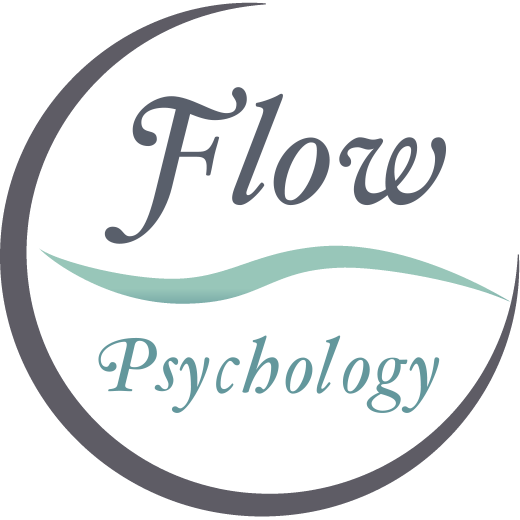Discover Your Favorite Ways to Nurture and Refuel Your Body and Mind
When it comes to taking care of ourselves, there are countless methods and practices to choose from. From meditation and yoga to long walks and bubble baths, everyone has their own unique way of nurturing their body and mind. But with so many options out there, it can be overwhelming to figure out what truly works for us. That’s why I want to explore the question: What’s your favourite form of self-care?
For some of us, self-care may mean indulging in our favourite foods or treating ourselves to a spa day. For others, it may involve disconnecting from technology and spending time in nature. Whatever it is that helps us refuel and recharge, it’s important to prioritize our own well-being and make time for self-care in our daily lives.
In this article, I will be sharing from my CBT Therapy in Dublin HQ some different forms of self-care and exploring the benefits they can bring. Whether you’re looking for new ideas or simply curious about what others do to take care of themselves, I hope this article will inspire you to prioritize your own self-care routine. Let the sunshine in!

The Importance of Self-Care
Self-care is an essential aspect of our overall well-being. It is the practice of caring for ourselves physically, emotionally, and mentally. It involves engaging in activities that nurture and refuel our bodies, minds, and souls.
When we prioritize self-care, we are better equipped to handle the challenges and stressors of daily life. We are more resilient, productive, and happier. Self-care is not a luxury or a selfish act; it is a necessity.
Neglecting self-care can lead to burnout, fatigue, and physical and mental health issues. It can also affect our relationships and our ability to perform well at work or school. Taking care of ourselves should be a top priority, and it is essential to make it a regular part of our daily routine.
Self-care can take many forms, and it is essential to find what works best for us. It can be as simple as taking a walk, listening to music, or taking a relaxing bath. It can also involve more significant changes, such as setting boundaries, seeking therapy, or making lifestyle changes. Whatever form it takes, self-care is a crucial aspect of our well-being, and we should make it a priority in our lives.
Physical Self-Care
Exercise
Exercise is an essential part of our physical self-care routine. We can enjoy a variety of physical activities, such as running, yoga, swimming, and weightlifting. Regular exercise helps us maintain a healthy weight, reduce stress, and improve our overall well-being. We make sure to schedule time for exercise in our daily routine, and we mix up our workouts to keep things interesting.
Nutrition
Nutrition is another critical aspect of our physical self-care. Believe in the importance of a well-balanced diet that includes plenty of fruits, vegetables, lean protein, and whole grains. Try to avoid processed foods and limit your intake of sugar and unhealthy fats. Also, make sure to stay hydrated by drinking plenty of water throughout the day.
Sleep
Getting enough sleep is crucial for our physical and mental health. Aim to get at least seven to eight hours of sleep each night, and we make sure to establish a consistent sleep routine. Avoid using electronic devices before bedtime, and create a relaxing sleep environment by keeping your bedroom cool, dark, and quiet.
In summary, our physical self-care routine includes regular exercise, a healthy diet, and sufficient sleep. I believe that taking care of our bodies is essential for our overall well-being, and make sure to prioritize our physical health every day.
Mental and Emotional Self-Care
Meditation and Mindfulness
Meditation and mindfulness are powerful tools for nurturing our mental and emotional well-being. By taking time to quiet our minds and focus on the present moment, we can reduce stress and anxiety, improve our mood, and increase our overall sense of well-being.
I like my clients to practice meditation and mindfulness in a variety of ways. Some of us prefer to sit quietly and focus on our breath, while others find it helpful to listen to guided meditations or practice yoga. Whatever method you choose, the key is to make time for regular practice.
Therapy and Counseling
Therapy and counselling can be invaluable tools for supporting our mental and emotional health. Whether you are dealing with a specific issue or simply looking to improve your overall well-being, working with a trained professional can help you gain insight, develop coping strategies, and make positive changes in your life.
If you are considering therapy or counselling, it can be helpful to do some research and find a provider who is a good fit for you. Look for someone who specializes in the issues you are dealing with and who you feel comfortable talking to. Feel free to contact me for some CBT Therapy in Dublin. https://flowpsychology.ie/contact/
Hobbies and Creative Pursuits
Engaging in hobbies and creative pursuits can be a great way to nurture our mental and emotional health. Whether you enjoy painting, writing, playing music, or practising a sport, these activities can help you relax, reduce stress, and boost your mood.
When choosing a hobby or creative pursuit, it’s important to find something that we truly enjoy and that allows us to express ourselves in a meaningful way. We don’t have to be experts or produce perfect results – the goal is simply to engage in an activity that brings us joy and helps us feel more connected to ourselves and the world around us.
Tips for Mental and Emotional Self-Care
- Make time for regular meditation or mindfulness practice.
- Consider working with a therapist or counsellor to support your mental health.
- Engage in hobbies and creative pursuits that bring you joy.
Social Self-Care
Building and Maintaining Relationships
I believe that building and maintaining relationships is an essential form of self-care. Social connections can have a positive impact on our mental and physical health, and they can help us feel supported and valued. I like to nurture my relationships by spending quality time with loved ones, whether it’s going out for coffee, taking a walk in the park, or simply having a phone call. Also make an effort to stay in touch with friends and family who live far away through video chats, text messages, and social media.
Setting Boundaries
Setting boundaries is another important aspect of social self-care. We can try and recognize that it’s important to prioritize our own needs and well-being, even when it comes to our relationships with others. We can try to communicate our boundaries clearly and respectfully, whether it’s saying no to a social event that doesn’t align with our needs or setting limits on how much time we spend on our phones or social media. By setting boundaries, we can ensure that our relationships are healthy, balanced, and fulfilling.
Community Involvement
I also find that getting involved in our communities is a great way to practice social self-care. Whether it’s volunteering at a local charity, attending a community event, or joining a social group, being part of a larger community can help us feel connected, engaged, and purposeful. Also, appreciate the opportunity to meet new people and learn new things through community involvement. By giving back to our communities, we can also feel a sense of pride and accomplishment, which can boost our mental and emotional well-being.
Spiritual Self-Care
When it comes to self-care, I believe that nurturing our spiritual selves is just as important as taking care of our physical and mental health. Here are a few ways we like to refuel our souls:
Prayer and Worship
For those of us who are religious, prayer and worship can be a powerful way to connect with something greater than ourselves. Whether it’s attending a religious service, reciting a daily prayer, or simply taking a moment to reflect and give thanks, incorporating prayer and worship into our daily routines can help us feel grounded and centred.
Nature and Outdoors
Spending time in nature can be a deeply spiritual experience. Whether it’s taking a walk in the woods, stargazing on a clear night, or simply sitting outside and feeling the sun on our faces, being in nature can help us feel more connected to the world around us. Plus, getting outside and getting some fresh air and exercise is great for our physical health too!
Self-Reflection and Journaling
Taking time to reflect on our thoughts and feelings can be a powerful way to connect with our inner selves. Whether it’s through meditation, journaling, or simply taking a few minutes each day to sit quietly and reflect, self-reflection can help us gain clarity and insight into our lives. Writing down our thoughts and feelings can also be a helpful way to process and work through difficult emotions.
In conclusion, incorporating spiritual self-care into our daily routines can help us feel more grounded, centred, and connected to something greater than ourselves. Whether through prayer and worship, spending time in nature, or self-reflection and journaling, taking care of our spiritual selves is an integral part of overall self-care.
Conclusion
Self-care is an essential part of our daily routine. It is important to take care of our physical and mental health to maintain a healthy and balanced lifestyle. I have discussed various forms of self-care, including exercise, meditation, and spending time with loved ones.
We have learned that self-care is not a one-size-fits-all solution. What works for one person may not work for another. It is essential to find what works best for us and incorporate it into our daily routine.
Remember, self-care is not selfish. It is necessary for our overall well-being. By taking care of ourselves, we are better able to take care of those around us. So, let’s make self-care a priority and nurture and refuel our bodies in the way that works best for us.



